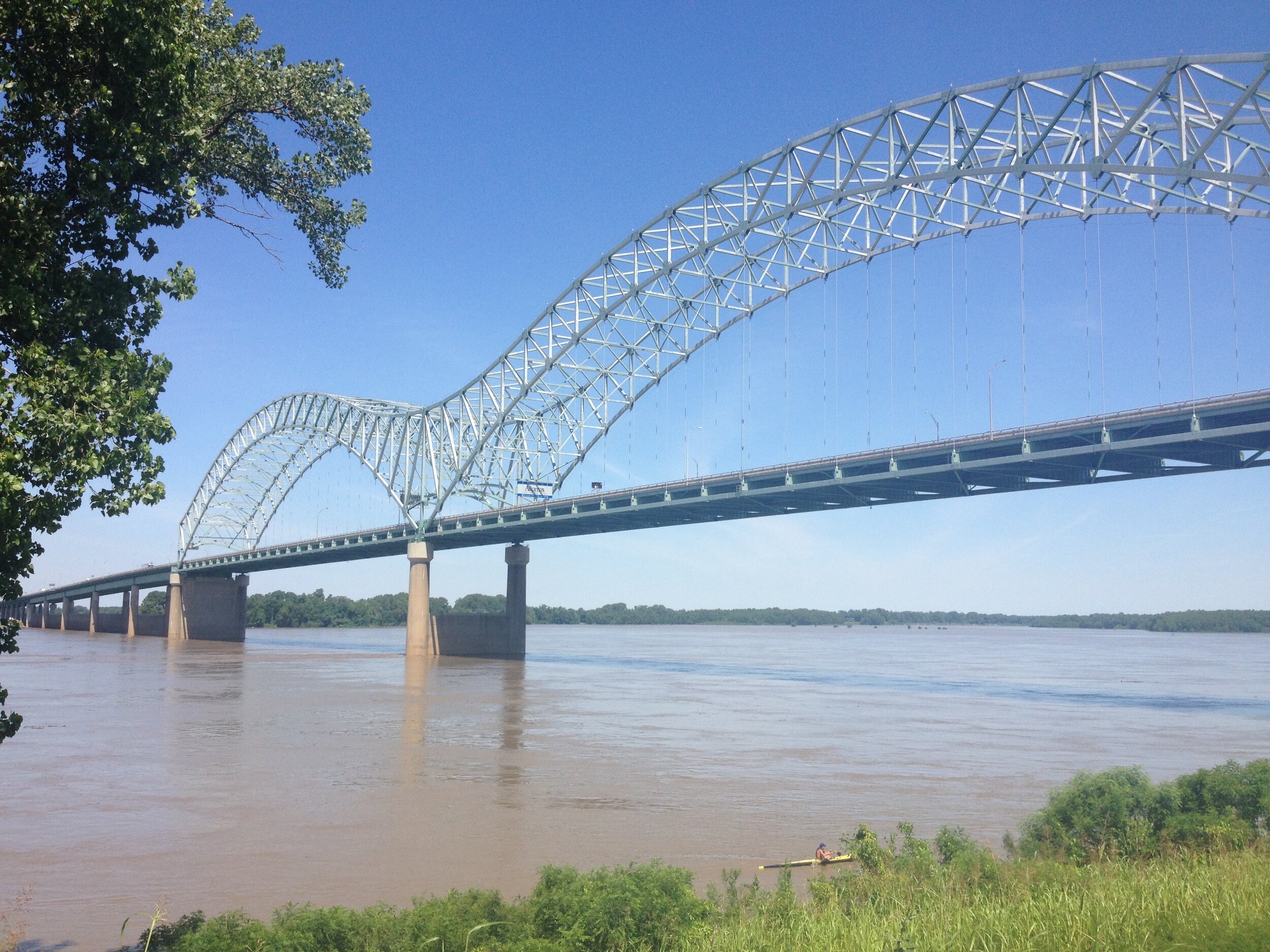I am well aware of the image that springs to your mind when you read this phrase on a bumper sticker or hear it in a country song.
White, for sure. Probably conservative, definitely a church goer and likely to a large Protestant place, and undoubtedly wed to the “Lost Cause” narrative that informs much of life in the South.
I’ve even been known to utter a prayer for the South to Rise Again - just the New South I know and love and not the one that lives in this image.
Well… I am white. And a pastor in the American Baptist Churches, USA. But that’s about where the similarities end.
I only say things like this every once in a while - they are easily misunderstood. But I always mean it when I do. I am fiercely proud of my southern heritage, although it is a constant thorn in my side as well. But even that, the omni-presence of white supremacy, the legacies of enslavement and genocide and its plantation economies, and my complicity in those systems, isn’t any worse there in Memphis than here where I now live, in Denver, CO. Just more obvious.
In the summer of 1975, my mother received her first Master’s degree, my little sister was born, and the family packed up and moved to Memphis, TN. My mother was from the Northeast, my father from the Plains states, and they met in college at Northwestern. After a little more study and work, they joined the Peace Corps. Then I showed up, and they focused again on study and work back in the States but always maintained their social justice core. My parents were utterly unprepared for the heat, and our unairconditioned car rolled around town like an oven on wheels. My parents were also naively unprepared for the radical cultural shifts from their primarily white and northern - or ‘yankee’- sensibilities.
They were appalled at the ubiquity of the N-word, and at the poverty of the South. They chose to buy their first home in a diverse neighborhood close to the University. We lived in three homes growing up, and all three were in racially diverse neighborhoods. I attended Memphis City Schools (public school system) for all 12 grades of school.
My parents made it clear to us that segregation and prejudice were not acceptable, but it was really school that changed me into who I am today. Public school attendance meant that my friends, the people in my girl scout troop, my eventual peers and colleagues as well as teachers were other than the all-white populations I saw everywhere else in Memphis. The non-white student population was mostly African American but not all, and I knew kids from many ethnic backgrounds.
Those friendships from that time that I have kept, renewed, and cherished are a great gift of my Southern upbringing. Those people have kept me accountable through continued relationship and reflection. I pray that I am a good friend to them.
The other legacy of growing up in Memphis is that I am uncomfortable in all-white rooms. All-white rooms make my heart skip and my skin itch, as if I’ve found a huge chunk of humanity to be missing. All-white spaces feel unnatural, and where I’m from, are always constructed.
It’s a little different out here, where the racial diversity includes the native populations long ago marched out of my home, and where there simply ARE more white people. Slight aside: There is a corner in Memphis that until street name changes, was the intersection of Auction Blvd, a road near which people were sold, and Jackson Blvd, one of the original pathways of the Trail of Tears. Literal intersectionality is in the air there. The Delta is the home of the Crossroads, after all.
One of the hard things for me to learn as a White Southerner was that outside of home, Southern food is the purview of the Black community. Not unlike this was my fairly steep learning curve in managing the very reasonable open hostility I would initially receive from many Black folks. There is no ‘safe white person’ credentialing, and certainly none that a white person can provide. Anything like that can only be given. For me not to acknowledge this is like the men who won’t accept that initially, each one of them presents a threat. I had to learn to shed my ego about this, and leaving the South helped me do this. Another prayer I have is that I’ve been able to use this awareness to deepen my own relationships, and my empathy for the reality faced by all people of color.
I am a member of the Southern diaspora, but do not appear so at first glance. Many people I know in Memphis work ceaselessly for justice and equity, and I love the meme that asks us to “Consider the South to be large communities of people of color and small resistance cells held hostage by fascist governments.” I am not alone in my belief that the American South is key to shifting how we live, to teaching us how to work together, to building the world we need to survive crisis and change.
And I am grateful to call it home.
- Rev. Jess Abell



